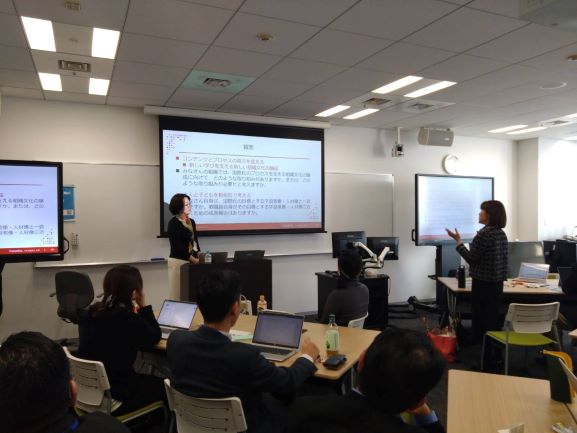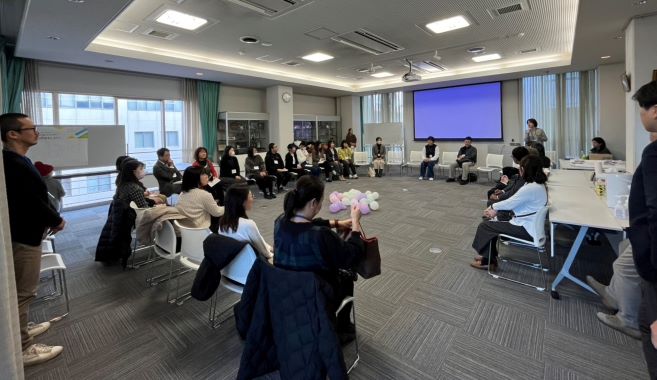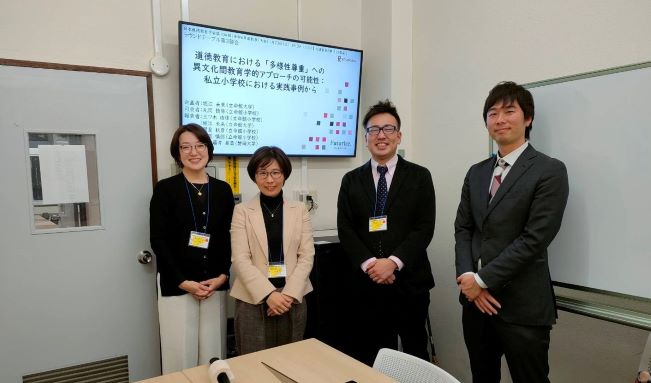RARA Associate Fellow
Transformative Education for Promoting Diversity, Equity and Inclusion



Transformative Education for Promoting Diversity, Equity and Inclusion
SCROLL
FELLOW PROFILE
Miki Horie, Ph.D. is a researcher and practitioner of international education, exploring mechanisms of personal growth through intercultural experiences. She also served as the principal of Ritsumeikan-affiliated primary and secondary schools for 7 years, where she was involved in the personal development of various individuals. Through these experiences, she established a unique career identity as an “Interculturalist-Principal” who promotes diversity, equity, and inclusion in education. She also heads the BRIDGE Institute, a professional team of international education facilitators. She holds B.A. and M.A. degrees in Education from Nagoya University, Japan, and a Ph.D. in Educational Policy and Administration from the University of Minnesota Twin Cities, USA.
SEE ALSO
Building a research foundation for DEI education
For the purpose of this research project, “Transformative Education for Promoting Diversity, Equity, and Inclusion” is tentatively defined as “any educational practice that nurtures individuals who recognize the diversity of the people who make up society and who, through dialogue and collaboration with others, seek to build a just society in which the human rights of every individual are protected.” We, a group of researchers and practitioners of various backgrounds, begin with exploration of the various existing programs for DEI in primary, secondary, and university education run by Ritsumeikan, and develop a variety of program models applicable to different educational settings worldwide. Through such collaborative activities, this project aims to establish a platform for sustainable development of research and practice of DEI education.
When I entered Nagoya University, I met and interacted with various international students and was overwhelmed by their strong sense of mission and passion to study in Japan. This experience opened my eyes to exploring different cultures, where “what you see is not everything,” and also made me realize that there are places in the world where “I can be myself” through the experience of being allowed to express myself differently from who I was in Japanese society. Based on this personal experience, I believe in the educational significance of “learning and growing through intercultural experiences,” and have been practicing this with university students. Later, when I became a principal and came into contact with a wider group of students, I realized the versatility of what I had been thinking about, and simultaneously, I realized that it could serve as a theoretical basis for DEI education, which led me to set this research theme.
The goal of this research is to develop a new theoretical framework by integrating various theories of intercultural education, such as intercultural competence and cross-cultural peer learning, with the practical knowledge of DEI education gained from experience as a principal of primary and secondary schools. In addition, the research team, which will be formed to bridge the gap between academia and the educational field, will comprise diverse members (domestic and international researchers, teachers of affiliated schools, graduate students, and business people). My ultimate vision is to realize schools and communities where each student can take pride in diversity and confidently express their individuality.
This research encompasses the following three areas of focus:
(1) Publication of academic books on the theory and practice of DEI education
(2) Development of educational materials and teaching plans that can be used in primary, secondary and tertiary educational settings, and programs for training DEI education facilitators who can use these materials and plans.
(3) Establishment of a research organization and an international research network to sustainably promote DEI education.
To achieve these goals, I will begin with theoretical research and analysis of practical cases and link them to the development of teaching materials and facilitator training programs. In addition, as a multicultural collaborative team, we will promote the development of a research organization and build an international research network throughout the five-year period.
By developing and disseminating useful and effective educational programs as a result of this research, we can encourage teachers to implement DEI education at schools. We expect that more individuals will advocate for social equity and inclusion, leading to a transformation in schools and society that ultimately enhances individual well-being.
Partnerships:
I would like to expand my collaboration with researchers and practitioners who share the aforementioned vision, transcending the barriers of school type, language, culture, and expertise. In particular, I welcome those who respect the creation of a place where each member can participate with ease, where everyone can demonstrate creativity and productivity through dialogue and collaboration, and where we can work together to support each other’s growth.



Latest Research Activity Report
-

Research Activity Report / Miki Horie
Professor Miki Horie delivered a lecture at the 3rd Seminar for Senior International Officers
2025 / 01 / 22
VIEW DETAIL
-

Research Activity Report / Miki Horie
BRIDGE Institute, headed by Professor Miki Horie, held a workshop on international education
2025 / 01 / 22
VIEW DETAIL
-

Research Activity Report / Miki Horie
Professor Miki Horie conducted a roundtable discussion at the 104th Fall Convention of the Japanese Society for Moral Education
2025 / 01 / 09
VIEW DETAIL

